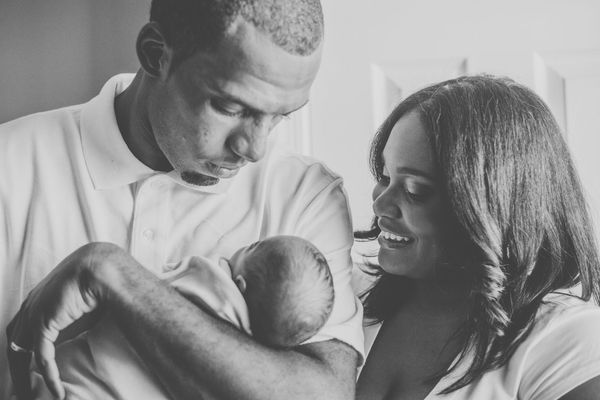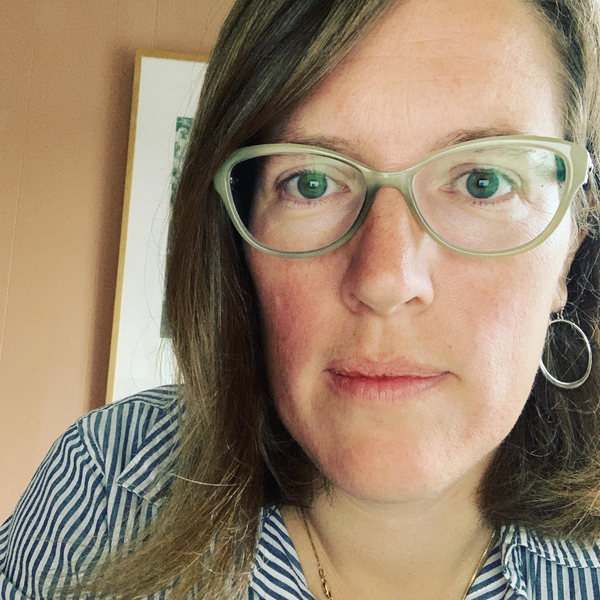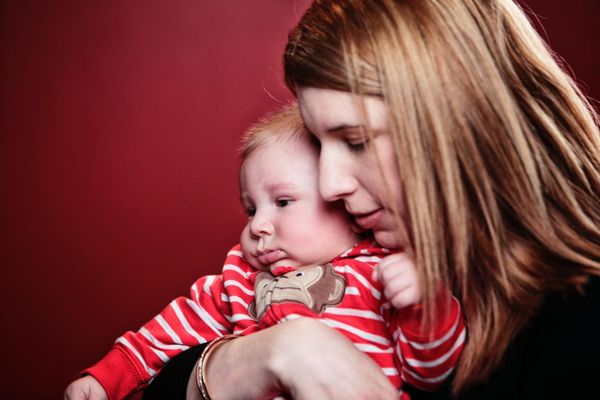A new baby! It's a cause for celebration!
But for many women, the elation and happiness can often turn to something quite the opposite: depression.
A few days after giving birth, up to 80 percent of new mothers experience the "baby blues." You may feel worried, overwhelmed, overtired and unprepared for your new responsibility. You may have crying jags or sleeping problems. Thankfully, after about two weeks, those feelings usually disappear, and you'll adjust to your new normal.
But postpartum depression(PPD) is something entirely different and much more extreme. It doesn't vanish as quickly, and it's more severe than the baby blues. In fact, it can be debilitating, interfering with the ability to care for your baby and yourself.
Learn more about the differences between perinatal depression and "baby blues."
PPD can make you feel irritable and hopeless and question your ability to be a good mother. You may have trouble bonding with your baby, feeling inadequate and withdrawing from family and friends.
Many women feel guilty about feeling so overwhelmed and sad when they think they should be elated. But PPD is a real thing—a real medical condition—just like depression. "It's a specific subset of depression that's often related to the sudden drop in estrogen," according to Sheryl Kingsberg, PhD, associate professor at Case Western University School of Medicine in Cleveland, Ohio.
A new baby tests and shifts the equilibrium of a relationship in so many ways. A baby demands lots of attention, and your partner might feel envy or jealousy now that more attention is being paid to someone else. There's an ever-growing list of chores that need to be divided up.
Additionally, sexual activity is on hold until the new mom's body recovers, and the demands a baby puts on your time, energy and body (especially if your baby is breastfeeding) interfere with sex. Read more about Sex During and After Pregnancy.
PPD can take a significant toll on your relationship just when the challenges of parenthood hit you and you need that relationship most. Not only can you feel confused, burdened and exhausted, your partner can, too. Constant sleep deprivation and pressures of being a new mother only add fuel to the fire.
Some women are more likely to experience PPD because of one or more of these risk factors:
- Medical complications during childbirth (premature delivery or having a baby with medical problems)
- Prior symptoms of depression or bipolar disorder
- Previous experience with depression during or after pregnancy
- Family history of depression or other mental illness
- Ambivalence about the pregnancy
- Alcohol or another drug abuse
- Stress during pregnancy or shortly after birth (job loss, death of a loved one, domestic abuse or personal illness)
Find out about Overcoming the Fear of Having Another Baby After Postpartum Depression.
One other important risk factor for PPD (but one you ultimately have control over) is a lack of strong emotional support from your spouse, family, partner or friends. That's why it's so important to communicate what you might be feeling. Although family members and friends are the ones who are closest to you, they may not always recognize the symptoms of PPD and what you're going through.
"Do not minimize depression—it's a real medical condition that needs treatment, and it can have very serious consequences if it's ignored," stresses Dr. Kingsberg. Although you may be afraid to admit that you're feeling such strong emotions, it's vital to share your feelings with those closest to you. "It takes a village," she says. New moms not only need to communicate with their partners, but the couple also needs to reach out to others for help.
One of the biggest issues is sleep. Even small amounts of sleep deprivation can affect your mood and outlook, not to mention your coping skills, quickly leading to depression. Sleep is seriously compromised by a new baby, and a new mom on maternity leave might feel obligated to be the one to manage the baby's waking, feeding and changings in the middle of the night—especially if she's breastfeeding. But the partner, even if he or she is the one who is working, may need to give up some sleep, too.
Family members and friends can pitch in by offering emotional support and help with daily tasks of caring for the baby and the home. Ask for what you need and advocate for yourself, your baby and your relationship.
There are many effective treatments for PPD, including counseling and antidepressant medications, which can be used alone or in combination. Although most antidepressants are safe to use during breastfeeding, always consult with your health care professional about the risks and benefits to both you and your baby.
- Why Aren't Women Speaking Up About Postpartum Depression? ›
- Overcoming the Fear of Having Another Baby After Postpartum Depression ›
- Battling Postpartum Depression Feels Different When You’re Black ›
- When Postpartum Depression Hit, I Heard Only the Lies My Depression Told Me - HealthyWomen ›
- New Moms Are Busy Checking on Their Babies. But Is Anyone Checking on Them? - HealthyWomen ›
- I Lost My Daughter to Postpartum Depression - HealthyWomen ›
- Difference Between Postpartum Depression and "Baby Blues" - HealthyWomen ›







